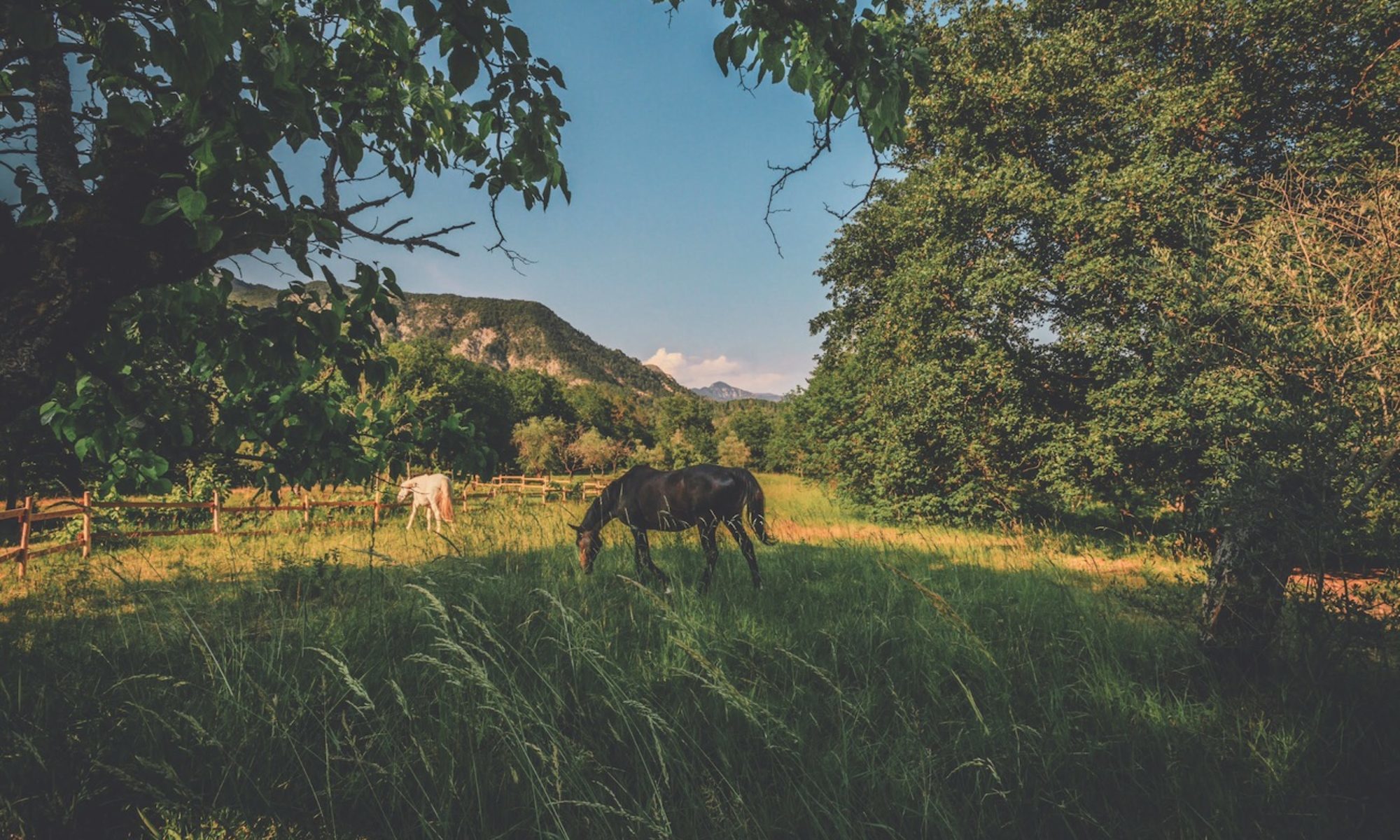Et si le chemin permettant de résoudre de nombreux maux de notre planète existait, accepterions nous de l’emprunter?
Comment avoir un impact positif énorme sur la planète et tous ses habitants? Comment sauver des millions de vies sans être médecin ou travailler dans l’humanitaire? Comment participer à sauver la planète, ses animaux, ses océans, ses forêts, son atmosphère sans être biologiste, physicien, chef d’état ou milliardaire ?
Et bien aussi étrange que cela puisse paraître… une des solutions applicables de suite, serait de commencer par cesser de manger les animaux.
POURQUOI CESSER DE MANGER LES ANIMAUX?
POUR LES ANIMAUX EUX MEMES
Parce que les animaux sont des êtres sensibles ils ne devraient pas être considérés comme de vulgaires marchandises, et parce que notre logique se veut de diminuer notre taux de destruction sur la planète et d’étendre la compassion à tous les êtres vivants.
Les animaux sont des êtres sociaux, ils savent utiliser des outils, élaborer des stratégies, apprendre le langage des signes, coopérer, bâtir de grandes cités, prendre du plaisir et pas seulement se reproduire, ils possèdent un langage complexe, peuvent même décorer leur habitat, ils ressentent toute une palette d’émotion de la tristesse jusqu’à la joie, et surtout ils ont la capacité comme nous de pouvoir souffrir.
Pourtant, nous les considérons comme des êtres inférieurs que nous pouvons exploiter et tuer à loisir. Chaque année, dans une parfaite indifférence 100 milliards d’animaux terrestres et plus de 1000 milliards d’animaux marins sont tués dans le monde.
Est-il moralement justifiable de tuer un animal innocent si ce n’est pas une nécessité et que nous pouvons nous nourrir autrement?
Suivant la culture où nous naissons nos comportements envers les animaux diffèrent. Pourquoi respecter un chien mais pas une vache, un chat mais pas une poule, un dauphin mais pas un saumon ? Le spécisme est à l’espèce, ce que le racisme est à la race, et le sexisme au genre, c’est à dire un mécanisme de domination et d’oppression d’un individu ou d’un groupe sur un autre.
Un principe éthique fondamental est la non violence (Ahimsa), « tu ne tueras point ». Les animaux comme les humains ont une conscience et des sentiments. L’élevage et l’abattage massif sont aussi cruels que le fait de jeter des pierres sur le chien de son voisin.
Selon l’adage, ne serait il pas temps de ne pas faire a autrui (tous les animaux humains et les autres compris) ce que l’on ne veut pas que l’on nous fasse ?
Le saviez vous?
![]() Bouddha, Pythagore, Orphée, Jésus, Marie Madeleine, Saint François d’Assise, Darwin, Zola, Einstein, Tolstoï, Montaigne, Tesla, Gandhi, Marguerite Yourcenar, Rousseau, Kafka avaient comme point commun le respect des animaux et optaient pour une nourriture végétale.
Bouddha, Pythagore, Orphée, Jésus, Marie Madeleine, Saint François d’Assise, Darwin, Zola, Einstein, Tolstoï, Montaigne, Tesla, Gandhi, Marguerite Yourcenar, Rousseau, Kafka avaient comme point commun le respect des animaux et optaient pour une nourriture végétale.
![]() La vision anthropocentriste dit que l’être humain est supérieur aux autres espèces, et la vision biocentriste voit l’être humain comme un fragment du grand écosystème.
La vision anthropocentriste dit que l’être humain est supérieur aux autres espèces, et la vision biocentriste voit l’être humain comme un fragment du grand écosystème.
Découvrez la vidéo de Philippe Wollen « Pourquoi retirer les animaux du menu », le quotidien caché des animaux dans le film « Earthling » (Terrien), et un discours sur l’éthique par Gary Yourovsky « Le meilleur discours du monde ».
« On a pas deux cœurs, un pour les animaux et un pour les humains, on a un cœur ou on en a pas. » Alphonse de Lamartine
POUR LA PLANETE

Parce que l’agro-industrie de la viande, du poisson et du lait est l’industrie responsable de la majeur partie de la destruction de l’environnement, largement devant celle des transports et du bâtiment, et parce que la planète qui n’est pas infinie est un bien commun de toutes les espèces qui la peuple.
Notre consommation quotidienne de chaire animale de vaches, poissons, cochons, poulets, moutons, lapins est directement lié à :
- la déforestation: 80% des forêts Amazonienne sont détruites pour nourrir le bétail.
- la pollution de l’air : l’industrie de la viande, du poisson et du lait est la 1ère activité humaine qui dégage le plus de dioxyde de carbone CO2, de méthane CH4 et de protoxyde d’azote N2O (principaux responsables du réchauffement climatique)
- la pollution et le gaspillage de l’eau : 70% de l’eau liquide potable mondiale est utilisée par le secteur agricole et la majeure partie par les animaux que nous élevons pour leur chair.
- les rivières et les nappes phréatiques sont polluées par les excréments, les nitrates, le phosphore, l’ammoniac, les antibiotiques, les hormones de croissance, les pesticides et les engrais chimiques
- l’acidification des océans détruit la chaine de corail, poumons des océans.
- la dégradation et la disparition des terres cultivables : 70% des terres mondiale sont accaparées par le bétail, les terres arables deviennent stériles, se lessivent et s’érodent à une vitesse exponentielle, la vie du sol se meurt.
- la destruction de la biodiversité animale et végétale : nous sommes à la 6e extinction de masse des espèces, la plus grande depuis 65 millions d’années.
- l’utilisation des Organisme génétiquement modifiés OGM et du clonage posent de sérieux problèmes structurels et éthiques.
Notre manière de nous nourrir est-elle durable? Trois fois par jour nous avons la possibilité d’y répondre.
Le saviez vous?
![]() L’élevage, y compris la pisciculture, est la plus grande source de polluants de l’eau : principalement à travers les déchets animaux, les antibiotiques, les hormones, les produits chimiques des tanneries, les engrais et les pesticides utilisés pour les cultures fourragères
L’élevage, y compris la pisciculture, est la plus grande source de polluants de l’eau : principalement à travers les déchets animaux, les antibiotiques, les hormones, les produits chimiques des tanneries, les engrais et les pesticides utilisés pour les cultures fourragères
![]() Une personne qui suit un régime végétal produit 50% de CO2 en moins, gâche 11x moins de pétrole, 13x moins d’eau et 18x moins de terre comparativement a une personne qui consomme des animaux.
Une personne qui suit un régime végétal produit 50% de CO2 en moins, gâche 11x moins de pétrole, 13x moins d’eau et 18x moins de terre comparativement a une personne qui consomme des animaux.
Découvrez l’impact écologique de la pêche sur les océans dans le court-métrage « Loosing Nemo » et découvrez pourquoi les plus grandes organisations environnementales comme politiques ne parlent pas de l’industrie la plus destructrice de notre planète aujourd’hui dans le documentaire « Cowspiracy »
« Il y a assez à la surface de la Terre pour le besoin de chacun mais pas pour la cupidité de tous. Puissions nous simplement vivre pour que simplement les autres puissent vivre. » Gandhi
POUR L’HUMANITÉ

Parce ce que la solidarité, le partage des ressources limitées et l’augmentation croissante de la population mondiale sont des raisons suffisantes pour repenser nos modes de vie et passer a une consommation alimentaire consciente, éthique et durable.
Nous sommes 7,5 milliards d’être humain aujourd’hui, nous serons environ 10 milliards en 2050, comment nourrir tout le monde sur une planète qui n’est pas infinie et qui pourtant voit sa consommation de viande et sa population mondiale augmenter chaque année?
60% des terres arables des pays en développement et sous développés servent à nourrir le bétail des pays développés, alors que la malnutrition et la sous-nutrition touchent près d’un milliard de personnes sur la planète et qu’un enfant meurt de faim toutes les 6 secondes.
82% des enfants qui ne mangent pas à leur faim vivent dans des pays où la nourriture est donnée aux animaux qui seront ensuite exportés dans les pays occidentaux.
Un constat alarmant lorsque l’on voit que les pays développés sont touchés par l’obésité et que 30% de la production alimentaire mondiale est jeté à la poubelle.
Le saviez vous?
![]() Nous sommes environ 800 millions de personnes sur terre a avoir adopté un régime végétal.
Nous sommes environ 800 millions de personnes sur terre a avoir adopté un régime végétal.
![]() 80% des antibiotiques vendus aux Etats Unis sont utilisés pour le bétail.
80% des antibiotiques vendus aux Etats Unis sont utilisés pour le bétail.
Découvrez le Ted Talk de Matthieu Ricard « Plaidoyer pour l’altruisme » et la conférence de James Wildman «101 raisons de devenir végan » qui nous invite avec recul et humour à repenser notre mode de vie en sortant de la Matrice.
« Les animaux de ce monde existent pour leurs propres raisons. Ils n’ont pas été faits pour les humains, pas plus que les noirs ne le furent pour les blancs, ou les femmes pour les hommes. » Alice Walker
POUR LA SANTÉ

Parce que se tourner vers un régime végétal permet d’obtenir une meilleure santé en bénéficiant d’un équilibre physique, mental et spirituel accru, parce que la nourriture végétale est délicieuse et permet de redécouvrir la cuisine et parce que la nourriture étant notre premier médicament, elle permet d’éviter la majeure partie des maladies modernes.
Est il nécessaire de se nourrir d’animaux pour être en bonne santé?
L’alimentation végétale est faible en graisses saturées, riche en fibres et antioxydants. Elle permet d’atteindre un équilibre physiologique, régénérateur et adaptée à tous les âges de la vie, qui permet de lutter contre les plus gros problèmes de santé de notre monde moderne comme les allergies, l’arthrose, l’obésité, le diabète, les maladies cardio-vasculaire et le cancer.
Elle augmente notre énergie globale, notre capacité régénératrice, permet d’avoir une meilleure digestion, une peau plus jeune, elle permet de lutter contre le stress et la dépression, favorise la perte de poids, le sommeil réparateur, elle permet une augmentation des performances et une meilleure récupération pour les sportifs.
La nourriture végétale est très riche en diversité, gourmande, étonnante, il y en a pour tous les goûts. Elle peut même s’adapter à ses recettes préférées en remplaçant la viande ou les produits laitiers par de nombreuses alternatives. C’est une manière de faire évoluer ses habitudes, tout en partageant un bon repas.
De plus, ce qui pénètre dans le corps physique est directement lié à l’efficacité du fonctionnement du cerveau. Les aliments tels que la viande et le poisson agitent le mental et rendent difficile le contrôle des pensées. Une part subtile de ce que nous absorbons devient conscience. Les vibrations d’une plante sont très subtiles et les personnes qui sont passés à une alimentation végétale peuvent observer qu’une certaine lourdeur d’esprit a disparu et que la conscience est devenue plus harmonieuse.
Le saviez vous?
![]() Carl Lewis est un champion olympique végétalien, il a remporté 10 médailles olympiques, dont 9 en or.
Carl Lewis est un champion olympique végétalien, il a remporté 10 médailles olympiques, dont 9 en or.
![]() Pendant 10 années d’études en moyenne pour devenir médecin, 10 heures seront consacrées pour étudier la nutrition.
Pendant 10 années d’études en moyenne pour devenir médecin, 10 heures seront consacrées pour étudier la nutrition.
Découvrez le documentaire édifiant «What the Health» de Kip Andersen et Keegan Kuhn et la vidéo rafraichissante d’Irène Grosjean dans « la vie en abondance ».
« La santé est une harmonie triple. Notre plan mental doit chasser le doute par la torche de la certitude intuitive. Notre plan astral doit détruire les passions par le glaive de l’idéal. Notre plan physique doit écarter les maladies par le toucher du végétarisme. Mais le parfait équilibre corporel ne peut se réaliser que par l’union de ces trois ascèses. Un végétarien peut être malade s’il pèche contre la Pureté ou la Vérité. » François Brousse
Sang régler tous les problèmes de notre monde moderne, arrêter de manger les animaux est une solution éthique fondamentale aux conséquences positives indéniables, qui permet de répondre en grande partie aux défis actuels, et qui apporte un réel espoir pour les générations futures.
Gardons à l’esprit ces quatre questions: manger des animaux est-ce nécessaire? Est-ce durable? Est-ce solidaire? Est-ce moralement acceptable?
La transition vers plus de justice, de compassion, et de sagesse poursuit son évolution et il ne tient qu’à nous de freiner ou d’accélérer ce processus.
Si vous voulez participer au changement c’est ici: vegan-pratique.fr/veggie-challenge
Pour savoir où manger végétalien dans le monde c’est là: happycow.net en France: veggoresto.fr
Parce que l’Amour est le plus haut degré de l’intelligence:
Prenons soin de la Terre et du Vivant, de l’Humanité et des Animaux, et partageons les merveilles de la Connaissance, du Savoir-faire et de l’Abondance.



